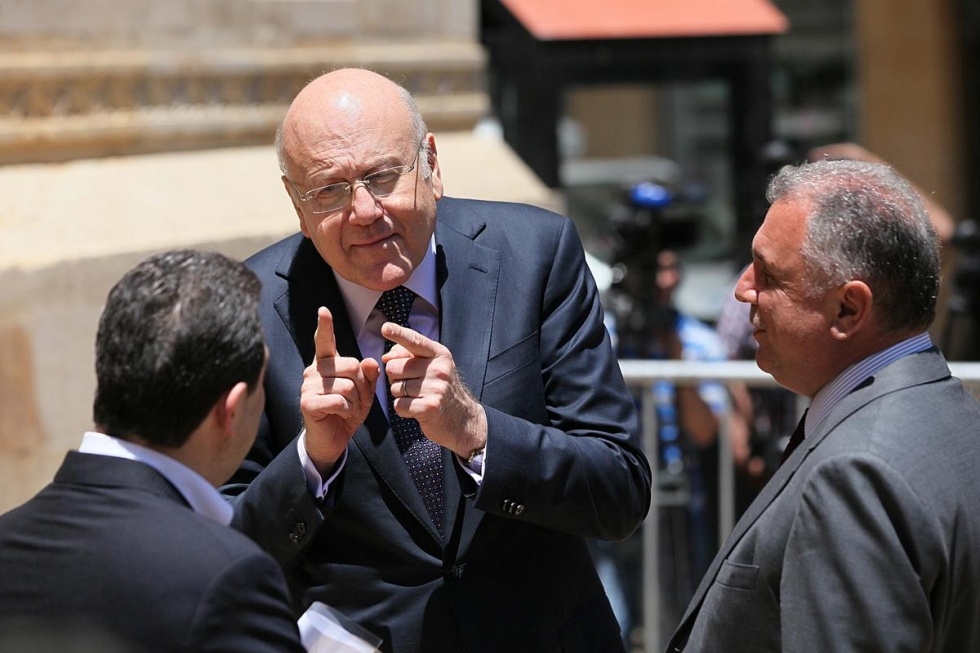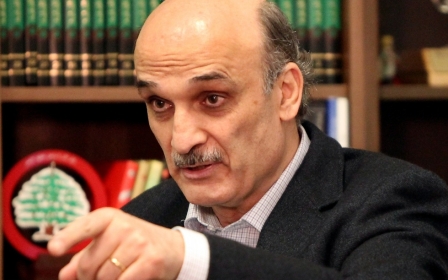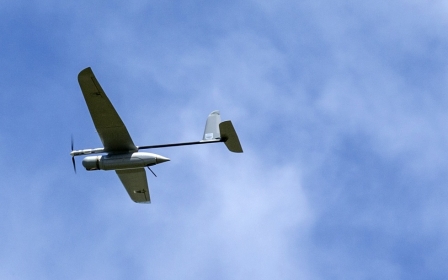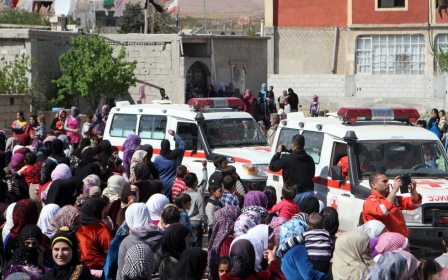Lebanon's Sleiman deplores presidential vacuum as mandate ends

Lebanese President Michel Sleiman on Saturday called on parliamentarians to elect a successor without delay, as his mandate comes to a end amid huge divide between the country's two main camps.
Sleiman's mandate expires on Sunday, and the government headed by Prime Minister Tammam Salam is set to assume all executive powers.
Parliament has convened five times in the past two months to try to elect a president ahead of the expiry of Sleiman's mandate, but failed each time due to a lack of quorum.
In a final speech to MPs, ministers and diplomats as he prepared to leave the presidential palace near Beirut, Sleiman called on "parliament to elect a president without delay, or else it will bear responsibility for the dangers that a void in this post brings."
According to Sleiman, the presidency "is a symbol of unity in the country". A presidential vacuum constitutes "a threat" to stability in Lebanon, "especially if this vacuum is intentional."
New MEE newsletter: Jerusalem Dispatch
Sign up to get the latest insights and analysis on Israel-Palestine, alongside Turkey Unpacked and other MEE newsletters
Lebanon's political paralysis is a result of a deep political rift over neighbouring Syria between the country's two main camps.
The March 14 coalition opposes President Bashar al-Assad, while Hezbollah and its allies back his regime.
Lebanon was dominated politically and militarily by Damascus until 2005. Syria continues to exert significant influence over the tiny Mediterranean country through its allies.
Hezbollah boycotted Sleiman's farewell ceremony, in which he reiterated earlier calls on the Shiite movement to pull out from the war in Syria, where it has deployed thousands of fighters to back Assad's army.
"Our national unity is our priority. It tells us not to intervene in the affairs of our neighbour... and to withdraw without hesitation from all that creates division among our ranks," he said.
Sleiman meanwhile said the Lebanese military should be the only armed force in the country, making an allusion to Hezbollah, which says it maintains its huge arsenal to stave off Israel.
This is the third time Lebanon sees a presidential void, after 1988 during the civil war, and 2007.
Under the peace deal to end the 15-year civil war, Lebanon’s President must be a Christian, the Prime Minister a Sunni, and the parliamentary speaker a Shiite. A two-thirds parliamentary majority is needed to elect a new president.
Middle East Eye delivers independent and unrivalled coverage and analysis of the Middle East, North Africa and beyond. To learn more about republishing this content and the associated fees, please fill out this form. More about MEE can be found here.




